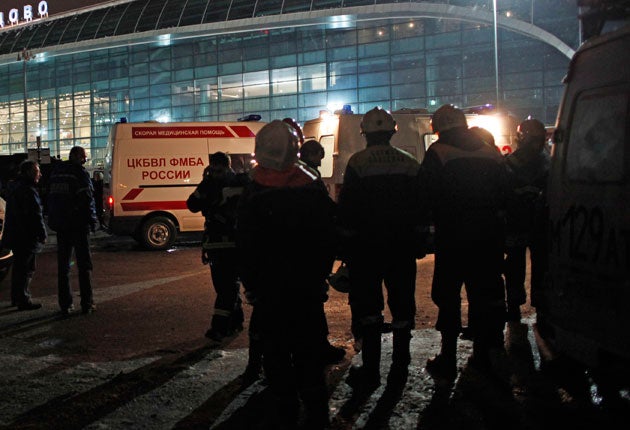Simon Calder: Travellers are now in the front line of Russia’s war on terror

Your support helps us to tell the story
From reproductive rights to climate change to Big Tech, The Independent is on the ground when the story is developing. Whether it's investigating the financials of Elon Musk's pro-Trump PAC or producing our latest documentary, 'The A Word', which shines a light on the American women fighting for reproductive rights, we know how important it is to parse out the facts from the messaging.
At such a critical moment in US history, we need reporters on the ground. Your donation allows us to keep sending journalists to speak to both sides of the story.
The Independent is trusted by Americans across the entire political spectrum. And unlike many other quality news outlets, we choose not to lock Americans out of our reporting and analysis with paywalls. We believe quality journalism should be available to everyone, paid for by those who can afford it.
Your support makes all the difference.Tourists and business travellers tend to be tolerant of destinations that suffer from terrorism and other manifestations of extreme violence, so long as foreign visitors are not the targets.
Most travellers to India, Mexico and – until yesterday – Russia enjoy their trips with little regard for the violence taking place away from the main business centres and tourist sites.
When the risk of being caught up in an atrocity remains statistically very low, travellers have typically been prepared to take a chance.
For Russia, those grisly percentages changed dramatically yesterday afternoon at the capital’s window on the West, Domodedovo airport. The location and timing – the international arrivals area, just after the wave of inbound flights from western Europe had arrived – were calculated to place foreigners in the front line of Russia’s wretched war on home-grown terror. Travellers will now be aware of the tangle of conflicts that have cost so many lives in the world’s biggest nation.
Perhaps strangely, Britain’s mainstream travel industry will barely notice, because the hopes for a surge in tourist numbers after the collapse of the Soviet Union were never realised.
Apart from the crowds who circumvent the tricky visa rules by visiting St Petersburg on a cruise, UK tourists to Russia can be counted in a few tens of thousands each year. The vast majority of travellers remain unaware of the wonders, from the Kremlin and Red Square to Lake Baikal and the Altai Mountains, that await beyond the stern façade of Russian bureaucracy.
Unlike Egypt and Bali, whose economies were devastated following terrorist attacks aimed at foreigners, Russia’s strong finances will be unaffected by any downturn in tourism – it is an insignificant source of jobs and foreign exchange. What will worry the authorities in Moscow much more is the attitude of overseas businesses, who will perceive new risks for their employees.
The blast at Domodedovo, Russia’s premier airport, will also raise questions about the whole focus of aviation security.
Vast resources are devoted to prevent passengers taking weapons or bombs into the aircraft cabin, but softer targets such as unrestricted parts of an airport present an increasingly tempting target for terrorists, shortening the odds in the grim game of roulette that 21stcentury air travel has become.
Join our commenting forum
Join thought-provoking conversations, follow other Independent readers and see their replies
Comments